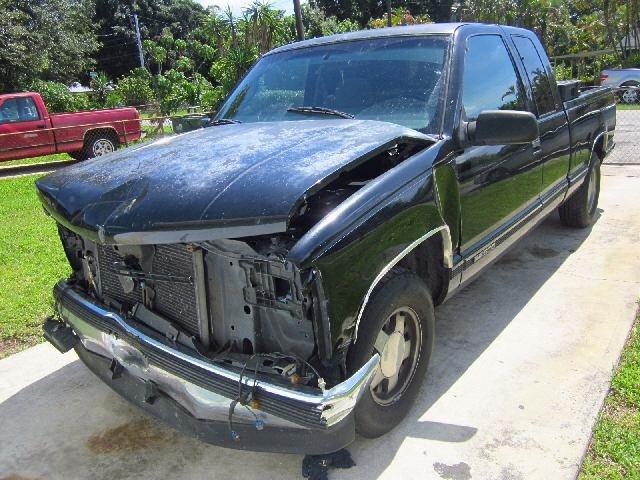 Vicarious liability has been recognized in Florida since 1920. Southern Cotton Oil Co. v. Anderson, 80 Fla. 441, 86 So. 629 (1920). As applied to motor vehicles, the legal concept allows the owner of a vehicle to be held liable without fault for damages caused by the negligent operation of the vehicle by a consensual driver. This is known as the Dangerous Instrumentality Doctrine.
Vicarious liability has been recognized in Florida since 1920. Southern Cotton Oil Co. v. Anderson, 80 Fla. 441, 86 So. 629 (1920). As applied to motor vehicles, the legal concept allows the owner of a vehicle to be held liable without fault for damages caused by the negligent operation of the vehicle by a consensual driver. This is known as the Dangerous Instrumentality Doctrine.
The financial exposure of owners for damages under the Dangerous Instrumentality Doctrine, as contained in section 324.021(9)(b)(3), Florida Statutes, is lower than it is for consensual drivers. For the statutory section to apply, the vehicle must have been loaned to the permissive user, as demonstrated by the following language: “3. The owner who is a natural person and loans a motor vehicle to any permissive user….”
Disputes have arisen over the meaning of the word “loans” in this section. Recently, in Youngblood v. Villanueva (opinion filed May 21, 2014), Florida’s Second District Court of Appeal held that the vehicle involved in a crash, resulting in a wrongful death, had not been loaned. The facts of the case were set forth in the court’s opinion:
The testimony at trial established that Youngblood consigned his uninsured vehicle to Teddy Aponte of Extreme Auto Sales with instructions to sell the vehicle. Youngblood testified that he never wanted to see the vehicle again after he handed the keys to Aponte, and he gave him no time limit in which to sell the vehicle. Because Aponte was driving the vehicle for his personal use when he struck and killed Eduardo Villanueva, Youngblood contended that this constituted a theft or conversion which exempted him from liability.
Relying on its precedent in Ortiz v. Regalado, 113 So. 3d 57 (Fla. 2d DCA 2013), the court looked to the definition of “loan” in section 265.565(2)(b), Florida Statutes (2012), for guidance:
Cf. § 265.565(2)(b), Fla. Stat. (2012) (defining “[l]oans,” “loaned,” or “on loan” as referring “to property in possession of the museum not accompanied by a transfer of title to the property or accompanied by evidence that the lender intended to retain title to the property and to return to take physical possession of the property in the future”) (emphasis added).
The court concluded that
although Youngblood did not transfer title to the vehicle and he did not intend to retake possession, assuming a sale were to occur, under the logic of Ortiz, this scenario does not constitute the type of “loan,” directly or indirectly, that would activate the provisions of section 324.021(9)(b)(3).
The jury in Youngblood rejected Youngblood’s contention that Aponte’s use constituted a theft or conversion which exempted him from liability.
While the opinion doesn’t clarify, since Youngblood filed the appeal and the DCA rejected his argument that he was only vicariously liable, the jury may have found him liable in negligence for the damages. Youngblood would have been motivated to take this issue up on appeal because damages for negligence are not subject to the same cap as damages for vicarious liability. For Youngblood to have been found negligent, the jury would have had to conclude that Youngblood knew or should have known that Aponte might use his car and that he was not fit to drive it. Otherwise, his liability fit into a third category somewhere between negligence and vicarious liability, one, apparently, that does not cap damages. Interesting.
*********************************************************
Contact us toll free at 866-785-GALE or by email (jgale@jeffgalelaw.com) for a free, confidential consultation to learn your legal rights.
Jeffrey P. Gale, P.A. is a South Florida based law firm committed to the judicial system and to representing and obtaining justice for individuals – the poor, the injured, the forgotten, the voiceless, the defenseless and the damned, and to protecting the rights of such people from corporate and government oppression. We do not represent government, corporations or large business interests.
While prompt resolution of your legal matter is our goal, our approach is fundamentally different. Our clients are “people” and not “cases” or “files.” We take the time to build a relationship with our clients, realizing that only through meaningful interaction can we best serve their needs. In this manner, we have been able to best help those requiring legal representation.
 Florida Injury Attorney Blawg
Florida Injury Attorney Blawg

